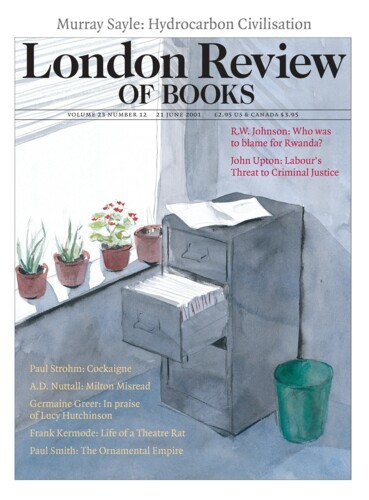Showboating: George Carman
John Upton, 9 May 2002
George Carman QC, the best known British advocate of his time, died of cancer on 2 January last year. Shortly afterwards, the Daily Telegraph published an obituary which listed the famous criminal and libel cases he had won, and examined his ferocious court-room reputation before concluding: ‘Away from work, Carman was a reasonably enthusiastic guest on the party circuit, but...





